第30章 RAASAY(3)
The number of this little community has never been counted by its ruler,nor have I obtained any positive account,consistent with the result of political computation.Not many years ago,the late Laird led out one hundred men upon a military expedition.The sixth part of a people is supposed capable of bearing arms:Raasay had therefore six hundred inhabitants.But because it is not likely,that every man able to serve in the field would follow the summons,or that the chief would leave his lands totally defenceless,or take away all the hands qualified for labour,let it be supposed,that half as many might be permitted to stay at home.The whole number will then be nine hundred,or nine to a square mile;a degree of populousness greater than those tracts of desolation can often show.They are content with their country,and faithful to their chiefs,and yet uninfected with the fever of migration.
Near the house,at Raasay,is a chapel unroofed and ruinous,which has long been used only as a place of burial.About the churches,in the Islands,are small squares inclosed with stone,which belong to particular families,as repositories for the dead.At Raasay there is one,I think,for the proprietor,and one for some collateral house.
It is told by Martin,that at the death of the Lady of the Island,it has been here the custom to erect a cross.This we found not to be true.The stones that stand about the chapel at a small distance,some of which perhaps have crosses cut upon them,are believed to have been not funeral monuments,but the ancient boundaries of the sanctuary or consecrated ground.
Martin was a man not illiterate:he was an inhabitant of Sky,and therefore was within reach of intelligence,and with no great difficulty might have visited the places which he undertakes to describe;yet with all his opportunities,he has often suffered himself to be deceived.He lived in the last century,when the chiefs of the clans had lost little of their original influence.
The mountains were yet unpenetrated,no inlet was opened to foreign novelties,and the feudal institution operated upon life with their full force.He might therefore have displayed a series of subordination and a form of government,which,in more luminous and improved regions,have been long forgotten,and have delighted his readers with many uncouth customs that are now disused,and wild opinions that prevail no longer.But he probably had not knowledge of the world sufficient to qualify him for judging what would deserve or gain the attention of mankind.The mode of life which was familiar to himself,he did not suppose unknown to others,nor imagined that he could give pleasure by telling that of which it was,in his little country,impossible to be ignorant.
What he has neglected cannot now be performed.In nations,where there is hardly the use of letters,what is once out of sight is lost for ever.They think but little,and of their few thoughts,none are wasted on the past,in which they are neither interested by fear nor hope.Their only registers are stated observances and practical representations.For this reason an age of ignorance is an age of ceremony.Pageants,and processions,and commemorations,gradually shrink away,as better methods come into use of recording events,and preserving rights.
It is not only in Raasay that the chapel is unroofed and useless;through the few islands which we visited,we neither saw nor heard of any house of prayer,except in Sky,that was not in ruins.The malignant influence of Calvinism has blasted ceremony and decency together;and if the remembrance of papal superstition is obliterated,the monuments of papal piety are likewise effaced.
It has been,for many years,popular to talk of the lazy devotion of the Romish clergy;over the sleepy laziness of men that erected churches,we may indulge our superiority with a new triumph,by comparing it with the fervid activity of those who suffer them to fall.
Of the destruction of churches,the decay of religion must in time be the consequence;for while the publick acts of the ministry are now performed in houses,a very small number can be present;and as the greater part of the Islanders make no use of books,all must necessarily live in total ignorance who want the opportunity of vocal instruction.
From these remains of ancient sanctity,which are every where to be found,it has been conjectured,that,for the last two centuries,the inhabitants of the Islands have decreased in number.This argument,which supposes that the churches have been suffered to fall,only because they were no longer necessary,would have some force,if the houses of worship still remaining were sufficient for the people.But since they have now no churches at all,these venerable fragments do not prove the people of former times to have been more numerous,but to have been more devout.If the inhabitants were doubled with their present principles,it appears not that any provision for publick worship would be made.Where the religion of a country enforces consecrated buildings,the number of those buildings may be supposed to afford some indication,however uncertain,of the populousness of the place;but where by a change of manners a nation is contented to live without them,their decay implies no diminution of inhabitants.
Some of these dilapidations are said to be found in islands now uninhabited;but I doubt whether we can thence infer that they were ever peopled.The religion of the middle age,is well known to have placed too much hope in lonely austerities.Voluntary solitude was the great act of propitiation,by which crimes were effaced,and conscience was appeased;it is therefore not unlikely,that oratories were often built in places where retirement was sure to have no disturbance.
Raasay has little that can detain a traveller,except the Laird and his family;but their power wants no auxiliaries.Such a seat of hospitality,amidst the winds and waters,fills the imagination with a delightful contrariety of images.Without is the rough ocean and the rocky land,the beating billows and the howling storm:within is plenty and elegance,beauty and gaiety,the song and the dance.In Raasay,if I could have found an Ulysses,I had fancied a Phoeacia.